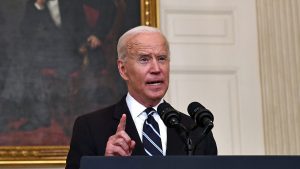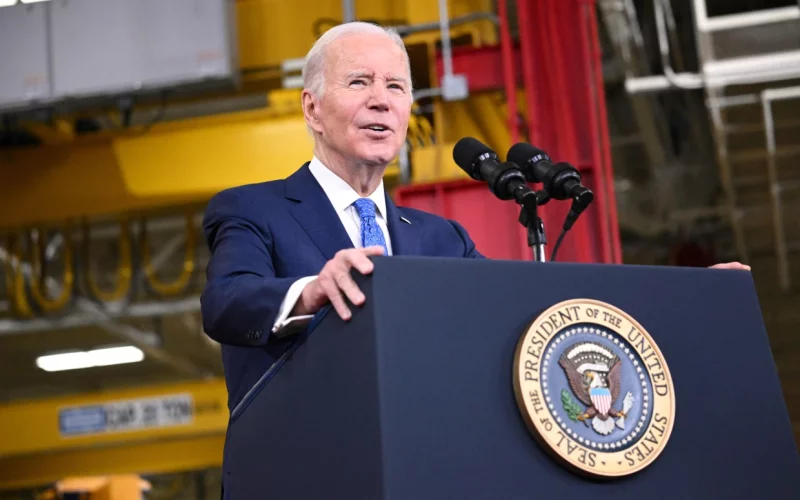President Joe Biden faces increasing pressure to reconsider his 2024 presidential campaign. Concerns among Democrats about his age, approval ratings, and the state of the nation have intensified discussions about the viability of his candidacy. This article explores the factors contributing to Democratic disquiet, the potential impact on the 2024 election, and the comparative analysis of Biden’s position with past presidents in similar situations.
Factors Contributing to Democratic Disquiet

Age and Health Concerns
One of the primary issues fueling Democratic unease is Biden’s age. At 81, Biden is the oldest serving president in U.S. history. Concerns about his physical and mental health are frequently discussed in political circles and media outlets. These worries are not just about Biden’s ability to campaign effectively but also about his capacity to handle the demanding responsibilities of the presidency for another term.
Approval Ratings
Biden’s approval ratings have fluctuated throughout his presidency but have remained relatively low in recent months. Issues such as inflation, the handling of the COVID-19 pandemic, and foreign policy challenges have contributed to a perception of weak leadership. Low approval ratings can be a significant liability for a sitting president seeking re-election, as they reflect public dissatisfaction and a lack of confidence in their leadership.
Policy and Legislative Challenges
Biden’s administration has faced numerous legislative hurdles, particularly with a divided Congress. Key elements of his agenda, including substantial climate change measures and comprehensive immigration reform, have stalled. The inability to push through these critical policies has frustrated many within the Democratic Party, leading to questions about Biden’s effectiveness and strategy.
Electoral Strategy and Viability
Strategists within the Democratic Party are increasingly concerned about Biden’s ability to win a second term. The fear is that Biden might struggle to energize the base and attract swing voters. This anxiety is compounded by the potential candidacies of strong Republican contenders. The prospect of facing a reinvigorated GOP has made some Democrats wary of Biden’s chances and eager to explore alternative candidates.
Comparative Analysis of Biden’s Position
Historical Precedents
Historically, sitting presidents facing re-election have encountered similar challenges. For instance, President Lyndon B. Johnson decided not to seek re-election in 1968 amid widespread dissent over the Vietnam War and internal party divisions. Similarly, President Jimmy Carter faced significant primary opposition from Senator Ted Kennedy in 1980, reflecting deep party fractures.
Comparison with Past Presidents
| President | Year | Age at Reelection | Major Issues | Outcome |
|---|---|---|---|---|
| Lyndon B. Johnson | 1968 | 59 | Vietnam War, Civil Rights | Withdrew from race |
| Jimmy Carter | 1980 | 56 | Economy, Iran Hostage Crisis | Defeated in election |
| George H.W. Bush | 1992 | 68 | Economy, Tax Pledge | Defeated in election |
| Joe Biden | 2024 | 81 | Economy, Health, Policy Challenges | TBD |
This table highlights the challenges faced by previous presidents and their outcomes. While each situation is unique, the patterns of internal party dissent and significant national issues often correlate with electoral difficulties.
Analysis of Democratic Discontent
Internal Party Divisions
The Democratic Party is experiencing notable internal divisions, with progressive and moderate factions clashing over policy directions and leadership. Progressive leaders argue that Biden has not done enough to address issues like climate change, healthcare reform, and student debt relief. In contrast, moderates are concerned about the electability of more progressive candidates in a general election.
Potential Candidates
The uncertainty surrounding Biden’s candidacy has led to speculation about potential Democratic contenders. Figures such as Vice President Kamala Harris, Transportation Secretary Pete Buttigieg, Senator Elizabeth Warren, and California Governor Gavin Newsom are frequently mentioned as possible alternatives. The emergence of these names reflects both the breadth of talent within the party and the depth of concern about Biden’s viability.
Public Opinion and Media Influence
Public opinion plays a critical role in shaping the political landscape. Media narratives about Biden’s age, health, and performance can significantly influence voter perceptions. Negative coverage can amplify concerns and contribute to a self-fulfilling prophecy of diminishing support. Conversely, positive media portrayals can bolster a candidate’s image and viability.
Potential Impact on the 2024 Election
GOP Advantage
A contentious Democratic primary could advantage the Republican Party, which appears more united behind potential candidates such as former President Donald Trump or Florida Governor Ron DeSantis. A divided Democratic electorate could lead to a bruising primary battle, depleting resources and weakening the eventual nominee’s position in the general election.
Voter Turnout and Engagement
High voter turnout and engagement are crucial for Democratic success. If Biden’s candidacy fails to inspire enthusiasm among the base, it could result in lower turnout, particularly among younger and progressive voters. Ensuring robust voter engagement will be a significant challenge for the Democratic Party, regardless of the nominee.
Policy Focus and Campaign Strategy
The 2024 campaign will likely focus on key issues such as the economy, healthcare, climate change, and social justice. The Democratic nominee’s ability to articulate clear, compelling policy positions and connect with voters on these issues will be vital. Campaign strategy, including effective use of digital platforms and grassroots organizing, will also play a critical role in determining the election outcome.
Comparative Table: Biden vs. Potential Democratic Contenders
| Candidate | Age | Key Strengths | Key Weaknesses |
|---|---|---|---|
| Joe Biden | 81 | Incumbency, Experience | Age, Health Concerns, Low Approval Ratings |
| Kamala Harris | 59 | Vice Presidential Experience, Diversity | Low Polling Numbers, Controversial Tenure |
| Pete Buttigieg | 42 | Young, Charismatic, Policy Knowledge | Limited National Experience |
| Elizabeth Warren | 75 | Strong Progressive Base, Policy Expertise | Age, Polarizing Figure |
| Gavin Newsom | 56 | Executive Experience, Media Savvy | Controversial Policies in California |
This comparative table highlights the strengths and weaknesses of Biden and other potential Democratic contenders, providing a snapshot of the party’s options and the challenges each candidate may face.
Conclusion
As pressure mounts on President Joe Biden to reconsider his 2024 re-election bid, the Democratic Party finds itself at a crossroads. The concerns about Biden’s age, health, approval ratings, and legislative challenges are driving an intense debate within the party. Historical precedents and comparative analysis suggest that navigating this disquiet will be crucial for the Democrats as they prepare for the upcoming election. The party’s ability to present a united front and engage voters will ultimately determine its success in 2024.












